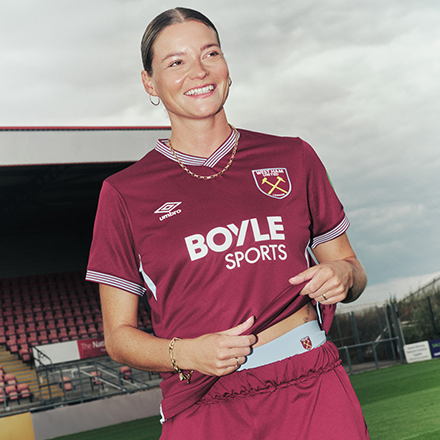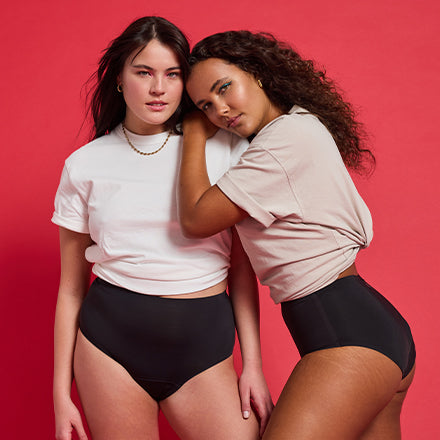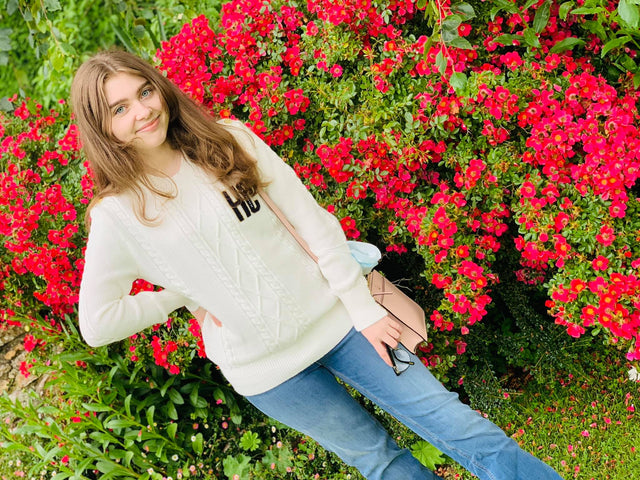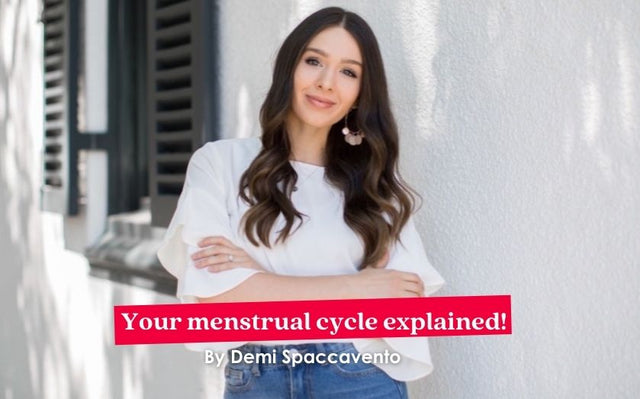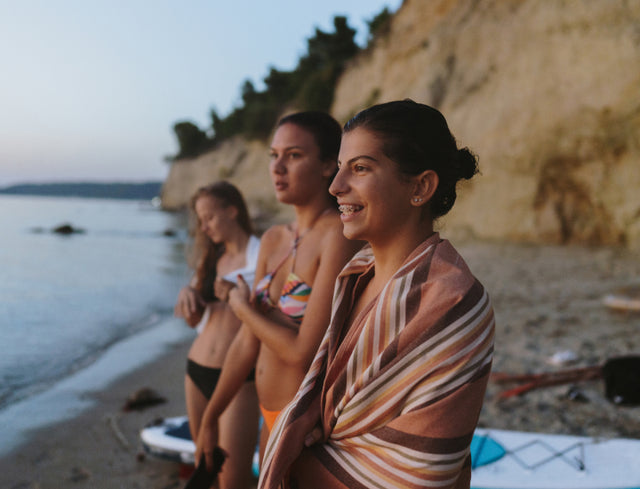Ruby is not your average 15-year-old girl from the UK, she is on a mission to end period poverty!
After realising there was a lack of teaching materials about period poverty, she decided to make her own.
She created a free online course for schools on the topic, through her nonprofit 'The Ruby Lockey-Pope Foundation'. Overcoming her anxiety, Ruby delivered a whole school assembly on period poverty to 800 girls and received Amnesty International's 'Find Your Voice' award.
How long have you been an advocate for ending period poverty?
Since I was around 11, so 5 years give or take. I found out people didn’t have the same rights as I did which really shocked me, and soon after that I learned how period poverty was a huge issue for so many.
How did you first learn about the issue?
I first learned about it when I was around 11 or 12, I read an article that talked about how prevalent and how much of a huge issue period poverty was.
What made you want to get involved – and how did you get started?
I felt it was so unjust that so many were missing out on 5 or 6 days of education every month due to period poverty, and so I wanted to help. I started by looking for organisations and charities that shared my passion and came across the United Nations.
When I was 12, I was lucky enough to go to Washington DC to attend the United Nations Youth Congress, and it was there that I had the privilege of lobbying with senators at Capitol Hill about issues including period poverty, forced marriage and every girl’s right to an education.
I really enjoyed meeting like-minded people, as well as those who would challenge my points and share their diverse views, which gave me an opportunity to think in a more open-minded way.
Following my return home, I discovered the Red Box Project which helps get free sanitary products to anyone who needs them in schools and colleges in order to combat period poverty.
What has been the highlight of your advocacy efforts so far?
I would have to say the highlights have been and continue to be the positive feedback I’ve received from the schools and colleges which have used my training. It is always fantastic to know they feel in a better position to support and educate their students, which is exactly what I had intended the training to do.
Recently I was awarded The Diana Award, which was established in honour of Princess Diana. When I found out, I was completely stunned and honestly blown away. Princess Diana represented kindness, courage and determination to improve the lives of others and despite not living in the same lifetime as she did, she’s still an incredible role model for me to aspire to.
What reaction do you get from young people when you teach them about period poverty a) in developing nations and b) closer to home?
I would say overall the reactions have been very positive with people keen to learn how they can help support and educate people in their communities. As you might expect, reactions can change depending where I am.
In terms of reactions closer to home, I find there is still a taboo surrounding periods in the UK, and people are often initially a little uncomfortable talking about it until they ‘warm up” to the discussion, but I think the subject is slowly but surely becoming more normalised.
In developing countries, I think there is a taboo but there is an acceptance that period poverty exists and there are things that need to be done to challenge that, such as teaching girls to make their own sanitary products with sewing classes. Of course, there is always more that can be done in terms of education and accessibility no matter the country or place - I truly believe that.
Do you come across many who have first-hand experience of period poverty – can you share any examples?
Of course, and I think meeting those people is what really drives me. It make the issue much more real than just reading numbers and statistics but also makes you wonder how you can help, so more people don’t have to go through the same thing. I remember a particular occasion which has really stuck with me, a girl told me she had to choose between pads or eating every month. I remember thinking to myself, how is this the case? There are still people having to choose between these two necessities, and as a result are missing out on their education through no fault of their own.
What do you think is the most pressing thing that can be done in the fight against period poverty?
I would say one of the most important things is education. By being aware of and understanding the problem, but also fighting for the change needed. Read about the subject and what is already in place, for example schools and colleges have access to the Period Product scheme passed in January 2020 which could really benefit a lot of people who have periods but are struggling to afford products. Over 60% of schools have not claimed the free sanitary products they are entitled to, due to the lack of awareness about the scheme.
If you can, donate to charities and food banks that provide free sanitary products in your communities and on a larger scale. I think many people associate periods with women and therefore think only girls need to be educated around the subject, but by not educating boys the stigma continues as well as a lack of knowledge.
How can we help?
Reusable period underwear can play a huge role in ending period poverty. Providing people with several pairs of period pants sets them up with ongoing monthly protection, which gets rid of the monthly anxiety around ‘can I afford pads this month’ or ‘will I need to go to the food back or the school office to get pads’. By removing this worry and stigma it helps people’s mental health, ensures they don’t lose days away from school, is better for the environment than disposable hygiene products – and ultimately saves money!
To find out more about Ruby and follow along with her journey head here https://www.rubylockeypope.com/



